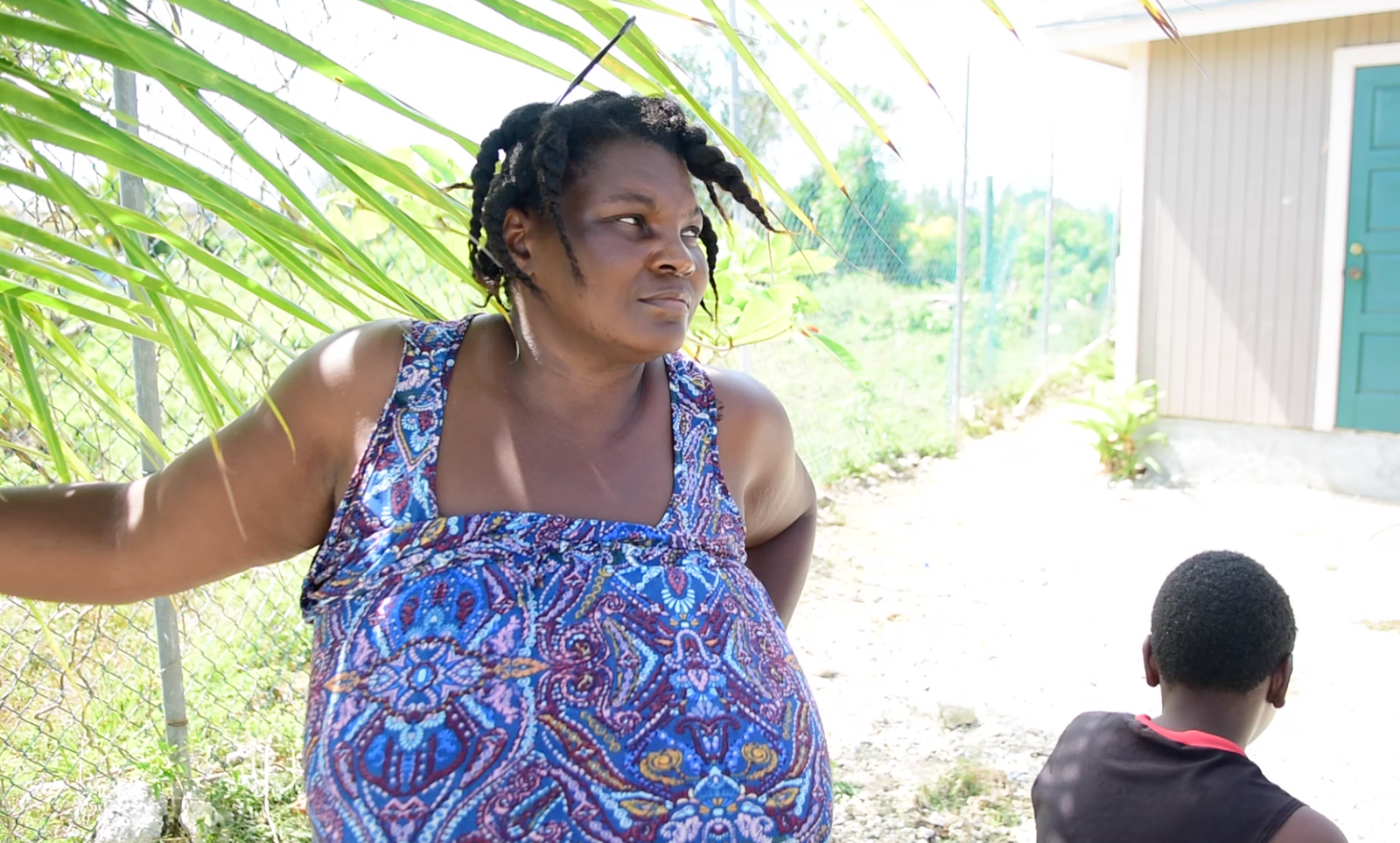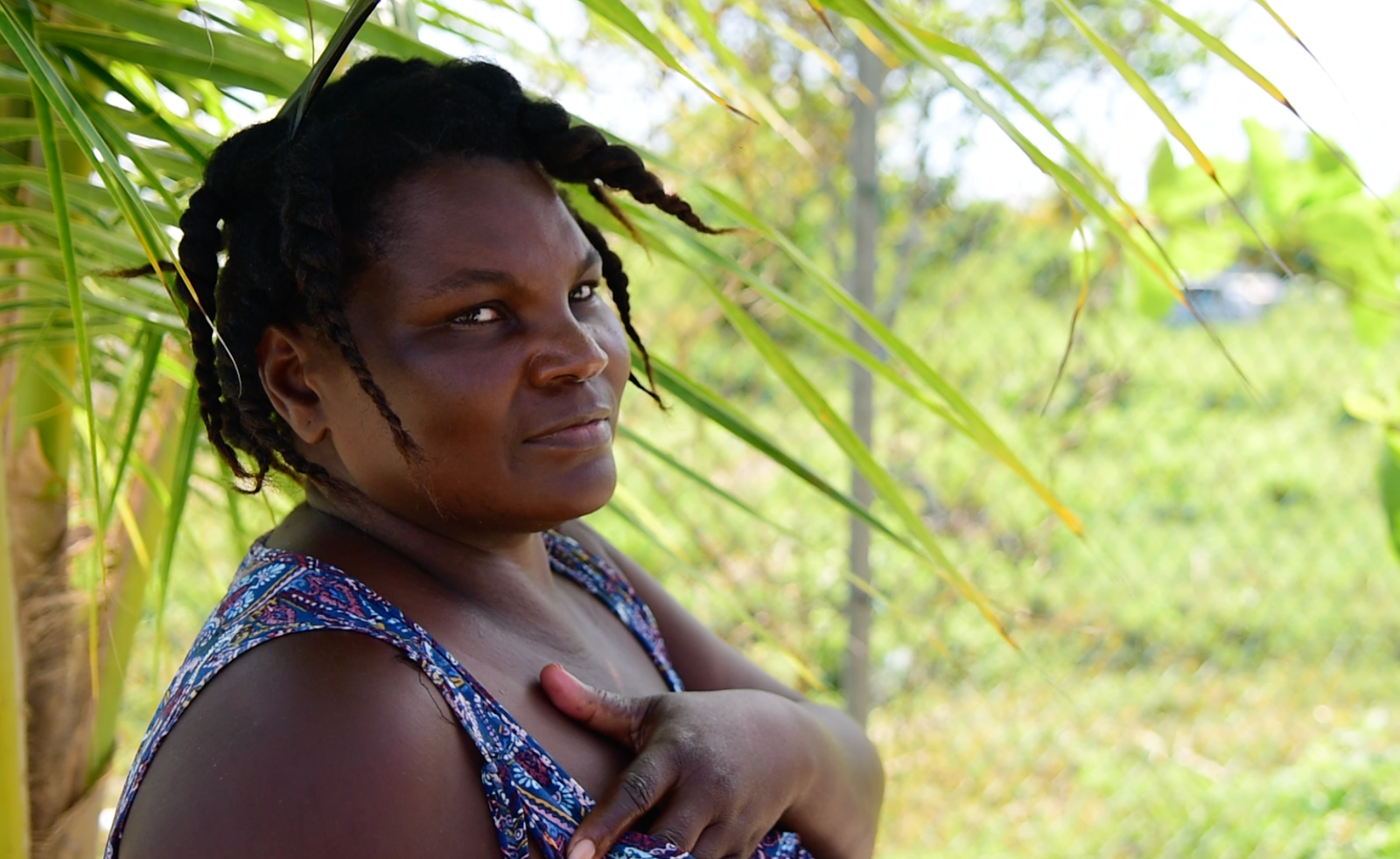NASSAU, BAHAMAS — “I’m Haitian. This is not my land. My decision is not to stay here,” said 49-year-old Mary Pierre, a mother of two who moved to The Bahamas 15 years ago with her husband to begin a better life, but now wishes to return to Haiti.
She spoke with Eyewitness News with the assistance of a Creole translator.
Her husband possesses a worker’s permit and works in construction.
But she said she has been unsuccessful in her job search over the years and attributes that failure to her inability to speak English.

A lack of finances has crushed her dream of living in her own home in a good neighborhood.
“Yes, I ended up having to stay here,” she said, shading her face from the midday sun.
“I don’t work. If I was working, I could’ve tried to move, but I have made a decision to not stay over here.
“I’m returning to my country.”
Her family’s homestead stands alone, fenced in with a chicken coop and a small vegetable garden.
It is on the outskirts of an unregulated community in the area, but boasts a concrete foundation, pane windows, electricity, running water and Wi-Fi Internet, the latter of which enables her son to attend school virtually.
Pierre, a God-fearing woman, said she remains hopeful about the future despite their challenging circumstances.
“When I wake up, I think about my situation, but I just continue to live how I’m living because what can I do?” she asked.
“I can’t go taking stuff that’s not for me. But I know God will allow me to live for sure.
“He’ll show me how to live for sure.”
Her children, ages 12 and nine, are bilingual.
According to her son, Thomas, The Bahamas is the only country he has ever known.

Of his mother’s decision to return to Haiti, Thomas said he wants to remain behind, though he cannot be naturalized for another six years when he becomes 18.
Thomas, a Sybil Strachan Primary School student, said while he feels different than other school children, he has friends and plays soccer as a striker.
When asked what makes him feel different from the other children his age, Thomas said he did not know, with a shrug.
“I just feel different when I go to school,” he eventually said.
Asked if he considers The Bahamas his home, he said: “Well, probably.”
He was also asked if he wishes to remain in The Bahamas and become a Bahamian citizen.
He paused for a long while before answering.
“Yes, sir, yes,” he responded.
“I would want to get it so I can give my mommy her own paper and help her.”
But Thomas’ mother said his desire to remain in The Bahamas would not deter her.
“If they could get help getting naturalized to get Bahamian passport, then that’ll be their choice,” she said.
“They could stay here, but I’ll return to my home country.
“I’m Haitian. This is not my land. My decision is not to stay here.”
Pierre said the lack of opportunity and challenges accessing healthcare and education influenced her decision to leave, adding that her desire to return to Haiti is more centered around being back in the country she calls home.
“You know, my country is my country,” she said.
“I came looking and hoping to work, but I couldn’t work.”
She continued: “I went looking for jobs, but did not find any and I don’t speak English and once you don’t speak English, it’s not easy getting a job here.

“Another obstacle was that because my husband gave me papers, I’m unable to work.
“I heard when you get papers from your husband, you can’t work.
“That is why I really need to return to my country. Because if I’m somewhere and I’m not working, I don’t believe I could stay here.”
Article 7 of the Constitution states that a person born in The Bahamas after independence, “neither of whose parents is a citizen of The Bahamas, shall be entitled, upon making an application on his attaining the age of 18 years or within 12 months thereafter, to be registered as a citizen of The Bahamas”.
The Constitution does not prescribe what happens to these individuals before their 18th birthday, or after their 19th birthday.
The issue of provisional citizenship and constitutional reform has been raised over the years.
In 2013, the late Dr Myles Munroe of Bahamas Faith Ministries recommended that all children born in The Bahamas should have “entitlement to citizenship in The Bahamas irrespective of their parents’ immigration status” and between the age of one and 18, the child be offered provisional citizenship similar to permanent residency status, with all rights available to permanent residents.






